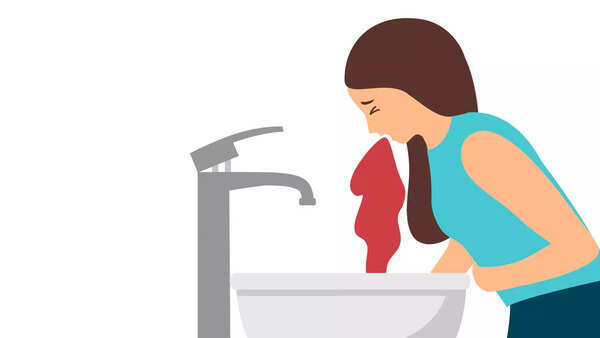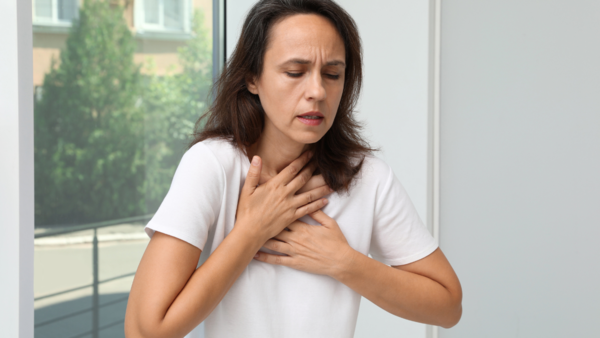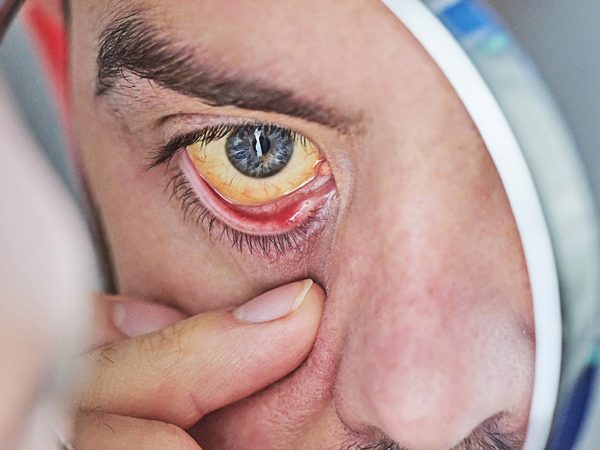Liver diseases are becoming increasingly prevalent worldwide. Conditions such as non-alcoholic fatty liver disease (NAFLD), hepatitis, and cirrhosis are on the rise. According to a 2023 report, deaths related to liver ailments have surged in the past decade, primarily due to lifestyle factors and late diagnosis. Early detection is crucial, as liver disease often progresses silently until it reaches a critical stage. Recognizing the warning signs can be life-saving.
Here are five critical symptoms of liver disease that require immediate medical attention:

Vomiting blood, also known as hematemesis, is a significant red flag. This symptom can indicate severe liver disease, particularly cirrhosis. The blood may appear bright red or resemble coffee grounds. This occurs due to ruptured varices, which are enlarged veins in the esophagus or stomach. These varices are often associated with advanced liver conditions like cirrhosis. The liver's compromised ability to regulate blood flow can lead to pressure buildup in the portal vein system. Immediate medical attention is crucial to prevent severe blood loss or shock.

While difficulty breathing is often linked to respiratory issues, it can also signal serious liver disease. Shortness of breath, or feeling like you cannot get enough air, is a critical symptom that should not be ignored. Individuals with chronic liver disease may experience fluid buildup in the abdomen (ascites) or lungs (hepatic hydrothorax). This fluid accumulation can compress the diaphragm, making breathing difficult. Anemia, resulting in reduced oxygen-carrying capacity due to internal bleeding, can also contribute to shortness of breath. Immediate medical intervention is necessary.

The appearance of black, tarry, or unusually dark stools is a concerning sign. This condition, known as melena, typically indicates bleeding in the upper digestive tract. Internal bleeding from ruptured varices or ulcers, often exacerbated by the liver's impaired production of essential clotting factors, can cause this symptom. The stool may also be sticky and have a foul odor. Prompt medical attention is essential to identify and stop the source of bleeding.
Unexplained confusion, disorientation, or excessive drowsiness should never be dismissed. These symptoms may indicate hepatic encephalopathy, a brain dysfunction resulting from liver failure. When the liver is unable to effectively filter toxins like ammonia from the blood, these substances accumulate and impair cognitive function. Immediate medical care is crucial to manage toxin levels and prevent potentially irreversible brain damage.
Jaundice, characterized by the yellowing of the skin and eyes, is a critical symptom of liver dysfunction. This condition arises when the liver fails to properly process bilirubin, a waste product from red blood cells. While jaundice can have various causes, a sudden onset or worsening of the condition without prior symptoms may suggest severe liver disease. If jaundice is accompanied by other symptoms, such as fatigue or abdominal pain, immediate medical attention is warranted.

Disclaimer: The information provided in this article is intended for general knowledge and informational purposes only, and does not constitute medical advice. It is essential to consult with a qualified healthcare professional for any health concerns or before making any decisions related to your health or treatment.
Newer articles
Older articles
 Moto G54 Gets Significant Price Cut in India, Making Budget Smartphone Even More Appealing
Moto G54 Gets Significant Price Cut in India, Making Budget Smartphone Even More Appealing
 Africa's Rift Valley: Mantle Upwelling Drives Continent's Split and Birth of New Ocean
Africa's Rift Valley: Mantle Upwelling Drives Continent's Split and Birth of New Ocean
 X Cracks Down: Over Half a Million Indian Accounts Suspended for Policy Breaches
X Cracks Down: Over Half a Million Indian Accounts Suspended for Policy Breaches
 Vijay Sethupathi Apologizes Amid Controversy Over Son Surya's Debut Film 'Phoenix'
Vijay Sethupathi Apologizes Amid Controversy Over Son Surya's Debut Film 'Phoenix'
 Jadeja's Accuracy Questioned: Ex-India Pacer Slams Spin Strategy in England Test Loss
Jadeja's Accuracy Questioned: Ex-India Pacer Slams Spin Strategy in England Test Loss
 IRCTC's AI Chatbot Revolutionizes Train Ticket Booking, Refunds, and Information Access
IRCTC's AI Chatbot Revolutionizes Train Ticket Booking, Refunds, and Information Access
 Ashada Gupt Navratri 2025: Unveiling Dates, Sacred Rituals & Hidden Significance of the Monsoon Festival
Ashada Gupt Navratri 2025: Unveiling Dates, Sacred Rituals & Hidden Significance of the Monsoon Festival
 Google Maps Enhances Directional Accuracy with Fused Orientation Provider Update
Google Maps Enhances Directional Accuracy with Fused Orientation Provider Update
 xAI to Open Source Grok, Democratizing Access to Musk's AI Chatbot
xAI to Open Source Grok, Democratizing Access to Musk's AI Chatbot
 Android Users Urged to Patch Now: Critical Security Flaws Expose Devices to Attacks
Android Users Urged to Patch Now: Critical Security Flaws Expose Devices to Attacks